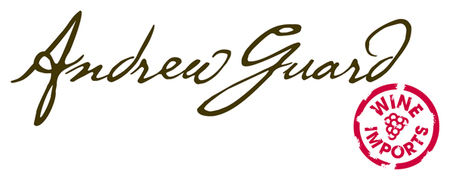2022 Niedermenniger Herrenberg Riesling Spätlese 'Feinherb', Hofgut Falkenstein
The 2022er Niedermenniger Herrenberg Riesling Spätlese Feinherb Palm (the reference to this internal cask name is provided in small print on the label after the AP number) comes from different small parcels on the western side of the vineyard and was fermented down to off-dry levels of residual sugar. Slightly reductive at first, this quickly opens up to reveal beautiful notes of vineyard peach, Conference pear, minty herbs, and stone fruits. The wine proves incredibly creamy and refined on the delicately smooth and beautifully refined palate. The finish is more focused as zesty elements come through. Aromatic and fruity flavors are wrapped into fine spices and herbal elements in the after-taste. 2027-2042 94 pts - Mosel Fine Wines
Erich Weber of Hofgut Falkenstein makes ultra-traditional, mostly dry-tasting Saar Rieslings. He likes to call himself “Winzer Weber.” Winzer is German for winegrower. In other words, the emphasis is on the work in his vineyards. With his tan and rugged face, he looks the part, too.
Erich ferments exclusively with wild yeasts in old wooden casks in a deep, cool cellar, and most of his wines end up either naturally dry (trocken) or off-dry (feinherb). Falkenstein, therefore, is one of the rare Saar producers that specializes in distinctive, bracing, light, dry Rieslings, bottled traditionally by the cask.
Falkenstein makes light-bodied, tangy, wholesome, dry-tasting Saar Rieslings, as well as residually sweet Spätlesen and Auslesen. These are old-style wines for drinking, which often retain a lively (spritzig), natural efferverscence from fermentation. In other words, they go down well — Trinkfluss in German. © 2014 Lars Carlberg
Erich Weber of Hofgut Falkenstein makes ultra-traditional, mostly dry-tasting Saar Rieslings. He likes to call himself “Winzer Weber.” Winzer is German for winegrower. In other words, the emphasis is on the work in his vineyards. With his tan and rugged face, he looks the part, too.
Erich ferments exclusively with wild yeasts in old wooden casks in a deep, cool cellar, and most of his wines end up either naturally dry (trocken) or off-dry (feinherb). Falkenstein, therefore, is one of the rare Saar producers that specializes in distinctive, bracing, light, dry Rieslings, bottled traditionally by the cask.
Falkenstein makes light-bodied, tangy, wholesome, dry-tasting Saar Rieslings, as well as residually sweet Spätlesen and Auslesen. These are old-style wines for drinking, which often retain a lively (spritzig), natural efferverscence from fermentation. In other words, they go down well — Trinkfluss in German. © 2014 Lars Carlberg





